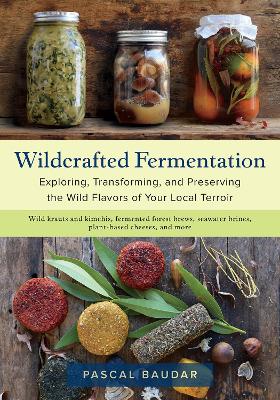Reviewed by annieb123 on
Wildcrafted Fermentation is a tutorial guide with encyclopedic coverage of the technical process of lactofermentation of edibles with an emphasis on foraged foods. Due out 12th March 2020 from Chelsea Green Publishing, it's 304 pages and will be available in paperback and ebook formats (paperback available now).
Author Pascal Baudar has written several solid books on wildcrafting along with fermentation previously and this one is a good addition to the library for both wildcrafters/self-sufficiency fans as well as explorers of diets based on natural foods and probiotics. The author's writing style is authentic, authoritative, science based, and accessible.
The introduction covers a little bit of history and cultural backgrounds for fermentation of foodstuffs as well as a capsule history of the author's personal fermentation journey, and segues nicely into the following technique and recipe chapters. The rest of the book follows a logical format, starting with basic techniques and a little biochemistry (layman accessible, not too technical), exploring and figuring out local terroir (unique characteristics of climate and ecology which impart a unique 'flavor stamp' on foods and produce from that area). There are chapters covering local ingredients, sourcing and utilizing them, as well as specific recipe tutorials for soups, pastes, spreads, sauces, cheeses and more.
The recipes themselves are clear, concise, and easy to follow. The ingredients are (mostly) easily sourced in any relatively well stocked grocery store. Most of the more difficult to find items have specific easy-to-find substitutes mentioned in the recipes. The ingredients are listed bullet style in a sidebar with both American standard measures and metric in parentheses - yay!). The photography throughout the book is clear, plentiful, and well done. Most all of the recipes and some of the process instructions are accompanied by photos.
The book also contains a cross referenced index and resource links list for further reading.
A competently written and useful niche book which would make a good selection for wildcrafters, homesteaders, natural foods enthusiasts, preppers, adventurous cooks and foodies.
Five stars.
Disclosure: I received an ARC at no cost from the author/publisher for review purposes
Reading updates
- Started reading
- 7 March, 2020: Finished reading
- 7 March, 2020: Reviewed
